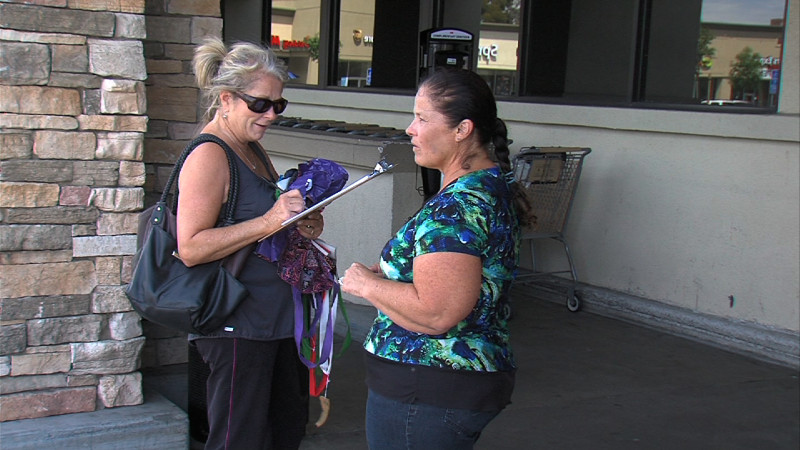While San Diego has a Republican mayor, the council has a Democratic majority. The battle began when they started passing more progressive measures, like the gradual minimum wage increase from $9 to $11.50 an hour and raising a construction fee to pay for affordable housing.
Brian Adams, a politics professor at San Diego State University, said the business community saw those actions as a threat.
“I think the business community wanted to say to the City Council, ‘Listen, we're paying attention to what you're doing, if you're passing laws that we don't like, we're going to fight you on it, we're going to use referendum,’ ” Adams said.
Jerry Sanders, the CEO of the local Chamber of Commerce and San Diego’s former mayor, said the Democrat-majority City Council left the business community with few options.
“We were unsuccessful in getting anyone to sit down and talk with us about it on the Council majority, so we were literally left with no choice but to referendum,” he said.
It takes signatures from 5 percent of San Diego voters to try to overturn a local law by referendum, which is about 33,000 signatures. Business groups spent some $500,000 to get the minimum wage on the ballot.
Sanders said the referendum process gives citizens a chance to be heard.
“It's where people who don't have an opportunity to get their voice heard actually get to sign petitions and say, ‘We want to vote on this,’ ” he said. “That's pure democracy.”
But Gloria said it's the opposite.
“It's an incredible erosion of democracy,” he said. “It's very disconcerting because it's not about a popular uprising. These are very small groups with a whole lot of money who are used to getting their way.”
Gloria is now pushing back by working to change San Diego’s referendum process. He wants more transparency around who's paying for a referendum and possibly to increase the number of signatures needed to get one on the ballot.
If the City Council changes the process, the business community says it will fight that, too.
Politics professor Adams said changing the referendum process could be the next battle in what feels like a larger war for political control over San Diego.
“A lot of what's going on here is jockeying by the business community. They've always had tremendous sway in San Diego politics, and I think they want to make sure they maintain that,” he said. “And perhaps they've seen with some of these initiatives coming out of the City Council, maybe their influence is slipping a bit and this is their way for them to assert their authority to stay very influential.”
With neither side ready to back down, San Diegans should be ready for more political sales pitches outside their grocery stores and inside their voting booths.

